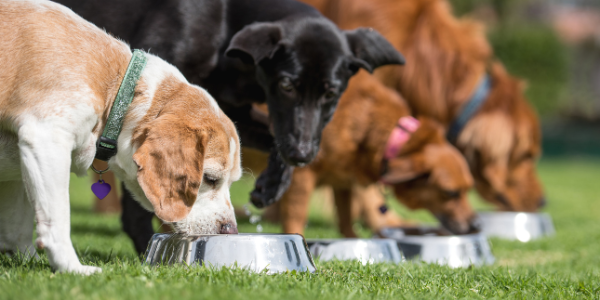You can help to keep your pet’s skin comfortable and healthy with an effective year-round program of parasite prevention against fleas, ticks and mites, and appropriate grooming and bathing routines. However, did you know that you can also support their skin condition through their diet?
Here are three ways that your pet’s diet can influence their skin health.
1. A nutritious balanced diet
Ensuring that your pet eats a good-quality diet that is balanced in macronutrients (fat, protein and carbohydrates) and micronutrients (vitamins and minerals) is an important component of maintaining the health of their skin and coat.
Up to 35% of a dog’s daily protein intake is used to maintain its skin and coat, whilst dietary components such as zinc, B vitamins and omega-3 and -6 fatty acids are particularly important for maintaining normal skin structure and function.
2. Food allergies or intolerances
In the case of food allergies, a pet’s immune system starts to become triggered by a particular substance in food (usually a protein) and produces an inflammatory reaction against it. This can lead to recurrent signs of tummy upset, skin irritation or respiratory disease, or in some unlucky pets, a combination of unwellness symptoms.
A food intolerance, on the other hand, is usually more of a digestive issue that doesn’t involve the immune system. Food intolerances may be triggered by proteins, grains, preservatives or additives.
If we suspect food-based allergies or intolerances in your pet, our vets can advise on a prescription elimination (hypoallergenic) dietary trial for them. Unfortunately, over-the-counter diets (even the fancy-looking ones!) frequently have unlabelled ingredients or protein contaminants in them that make them unsuited for food trials.
3. Additional supplements
If your pet is diagnosed with a long-term skin issue such as a food or environmental allergy, therapeutic doses of natural supplements such as omega-3 fatty acids (EPA and DHA) and PEA (palmitoyethanolamide) can help to control their symptoms.
For more information on helping your pet to love the skin they’re in, consult our skin-savvy vets!

